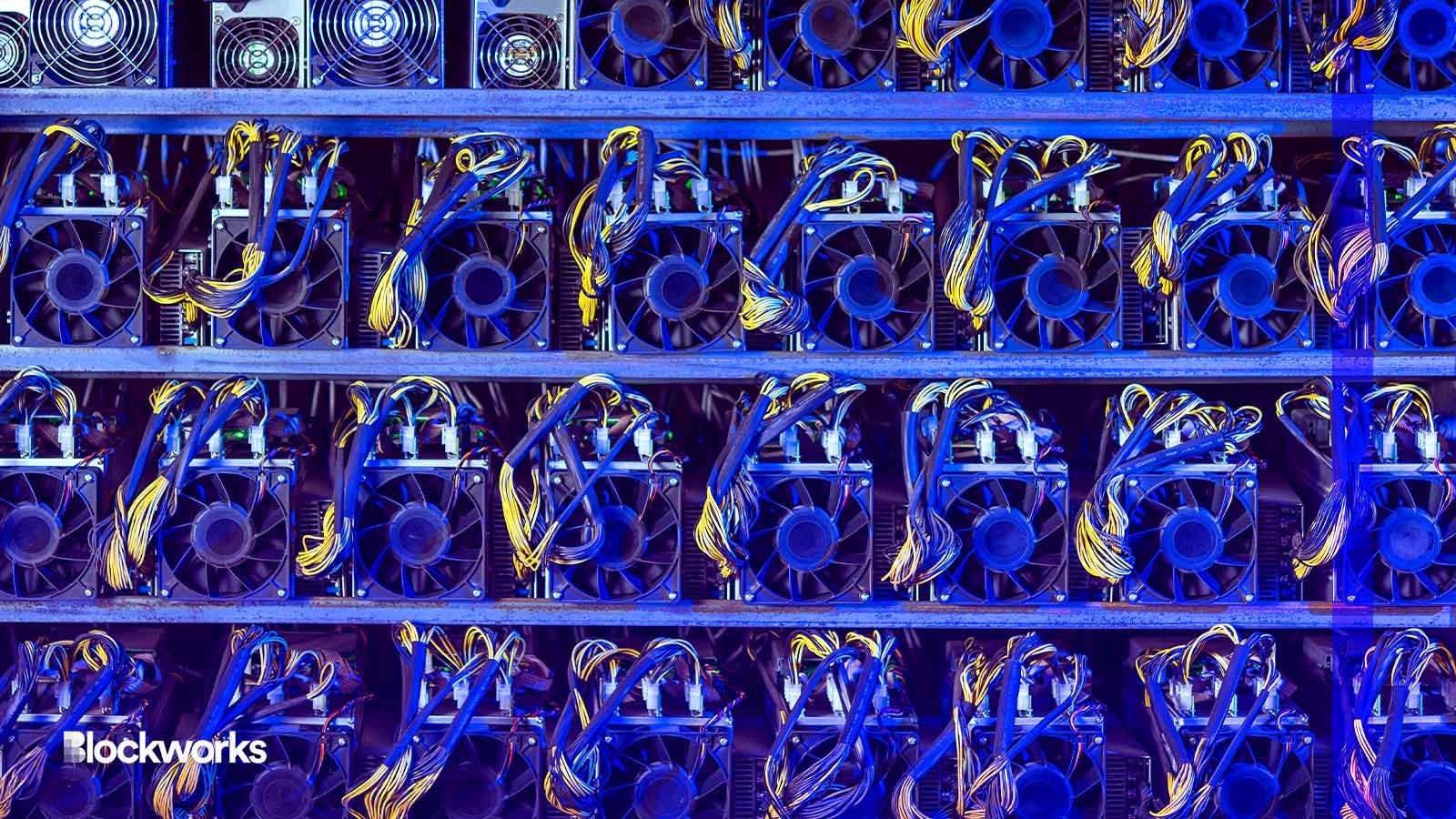Australia crypto miner further bolsters US presence with a $110M fundraise
Arkon Energy links up with blockchain data center consultant Sabre56 as miners continue jockeying for position ahead of next year’s bitcoin halving

Mark Agnor/Shutterstock modified by Blockworks
Australian firm Arkon Energy is expanding its US bitcoin mining footprint just six months after first entering North America — and has raised $110 million to help fuel the growth.
The Sydney-based company has agreed to purchase facilities from blockchain data center consultant Sabre56. The new sites are set to triple its capacity to 300 megawatts (MW).
Sabre56 is set to oversee operations across Arkon’s six US bitcoin mining facilities.
The agreement comes as Arkon has secured an additional $110 million in a funding round led by Bluesky Capital Management — of which $80 million will go toward the US expansion.
Read more: Why did Cambridge revise its bitcoin electricity consumption index?
The other $30 million is earmarked for an artificial intelligence cloud service project at Arkon’s 30MW data center in Norway, the company said.
Founded in 2019, Arkon Energy closed a $28 million funding round in November 2022. The capital came as the firm acquired Norway data center Hydrokraft. Arkon then, in June, acquired a data center in Hannibal, OH with a “first-stage design capacity” of 100MW.
The company’s latest buy includes an operational facility in Hopedale, OH contracted to a hosting client. The acquisitions add an initial 50MW of initial capacity, as well as 150MW more across new sites in Texas and North Carolina — set to be completed by Aug. 24, the company told Blockworks Thursday.
Josh Payne, Arkon Energy’s founder and CEO, told Blockworks there is roughly 400MW of bitcoin mining machine capacity produced each month, noting the US has the most new hosting capacity demand.
“This creates…an excellent opportunity to build, own and operate the scarce resource which is the data center, the low-cost power connection and the optic fibre connection,” he added.
The deal comes after Sabre56 raised $35 million in February and made a deal with GEM mining in May to host 4,510 of the firm’s bitcoin miners at its new Wyoming data centers.
Sabre56 founder Phil Harvey previously told Blockworks the company was looking to build more hosting facilities and ultimately wind down its consulting business.
Read more: Bitcoin player shifts focus from miner consulting to hosting
Miners jockey for position ahead of halving
Payne said in a statement that the acquisition “catapults the company into a global top five position in terms of operating size and power cost efficiency.”
The next bitcoin halving, slated for April, is an event industry watchers and executives have said is likely to expose the crypto mining segment’s winners and losers.
The halving is set to force bitcoin mining operators to buy newer, more efficient machines as older equipment becomes unprofitable, Payne added.
Read more: Crypto miners keep busy ahead of halving with accelerated machine buys
“When that changeover happens, operators are going to be looking for the lowest possible cost power contracts for hosting to ensure longevity of equipment,” the CEO told Blockworks. “Arkon Energy’s portfolio operates in the lowest power cost jurisdictions in the US, with additional efficiencies derived from demand response programs.”
Bitcoin miners have indeed been busy ahead of the halving.
Hut 8 and US Bitcoin Corp. closed their merger deal earlier this month in a transaction that gives the combined company a greater reach across North America and more business lines.
More recently, Marathon Digital — currently the largest North American miner by hash rate, at 23.1 exahashes per second (EH/s) as of Nov. 30 — said Tuesday it is set to add 390MW to its bitcoin mining capacity via an acquisition.
The buy could help Marathon double its hash rate to 50 EH/s in the next 18 to 24 months.
Core Scientific, which looks to soon exit from its bankruptcy, is a close second to Marathon in hash rate, with an energized total of 21.6 EH/s at the end of November. Riot Platforms, with a deployed hash rate of 12.4 EH/s, acquired roughly 18 EH/s of mining capacity earlier this month through a deal with MicroBT.
Get the news in your inbox. Explore Blockworks newsletters:
- The Breakdown: Decoding crypto and the markets. Daily.
- 0xResearch: Alpha in your inbox. Think like an analyst.






